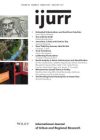This article presents the findings of an extensive survey on public and policy level perceptions of the failed water supply and sanitation system privatization in Belize City. Drawing upon the burgeoning critical geographical literature on the commodification and privatization of water, we formulate a conceptual framework for analyzing the ethnographic data on perceptions and experience of privatization by Belize City water users. The experience of water supply privatization was largely negative. Residents complained bitterly about an increase in water tariffs and excessive disconnection rates by the privatized Belize Water Supply Limited (BWSL). Many policy makers also accused BWSL of front‐loading profits and not making strategic investments in infrastructure. But the symbolic significance of water privatization for the residents of a small Caribbean country like Belize exceeded its practical implications. We argue that the major themes to emerge from the ethnographic data collected for the study can be synthesized into three ‘popular privatization narratives’ (PPNs). The first was based on the perception that poor governance led to privatization; the second on a preference for national‐ over global‐scale politics, so that objections to privatization were based on nationalism; the third on angst about losing control to the systemic compulsions of neoliberal globalization. Overall the privatization process not only had important (largely negative) material consequences for Belizeans but, given their historical and cultural geography, profound discursive and symbolic consequences for their sense of identity in a condition of neoliberal globalization.
Details
Written by:
DAANISH MUSTAFA, PHILIP REEDER
Digital Object Identifier (DOI)
10.1111/j.1468-2427.2009.00849.x
About DOI
Read full article as PDF
Read full article as HTML
See the references for this article
